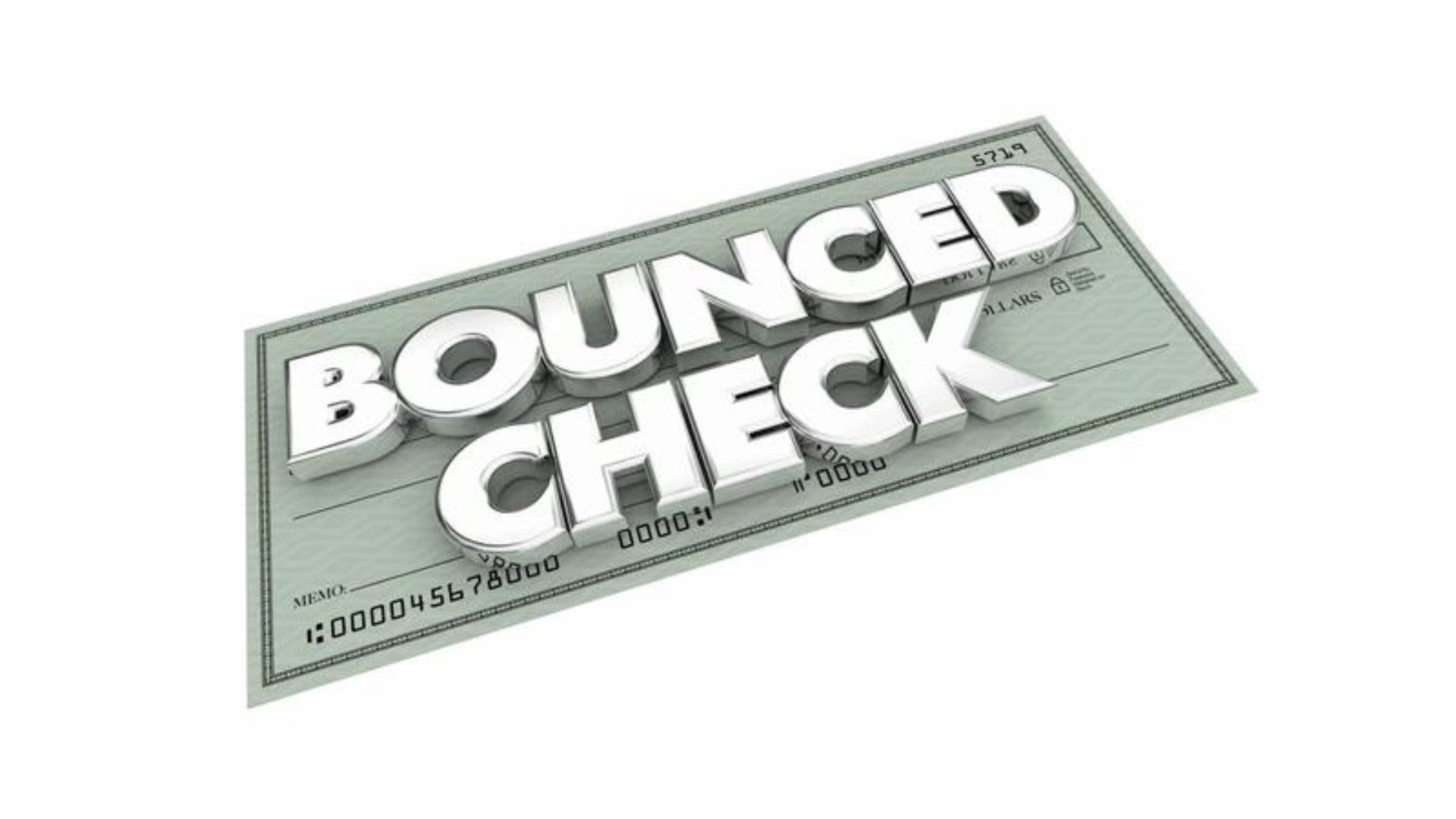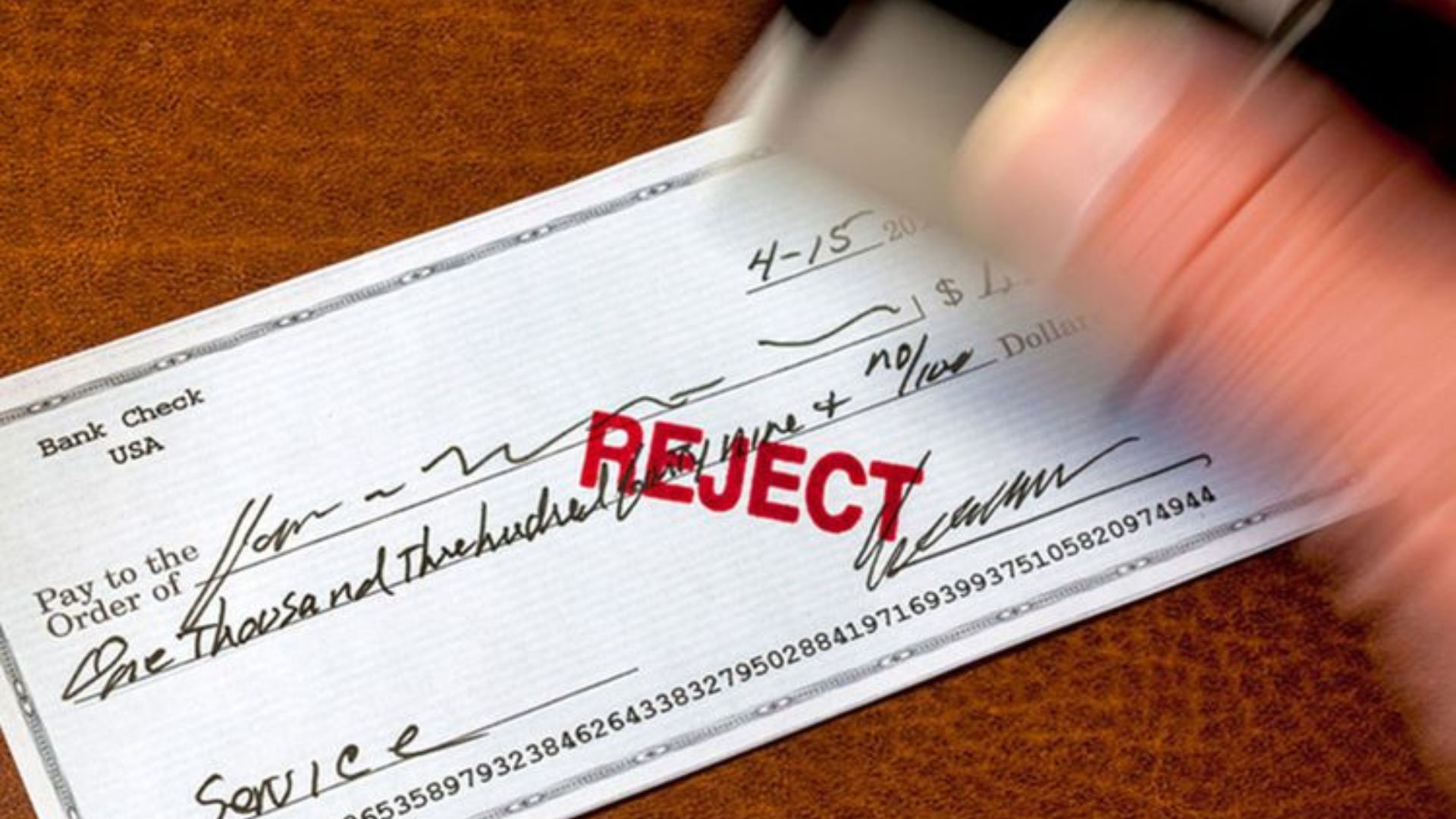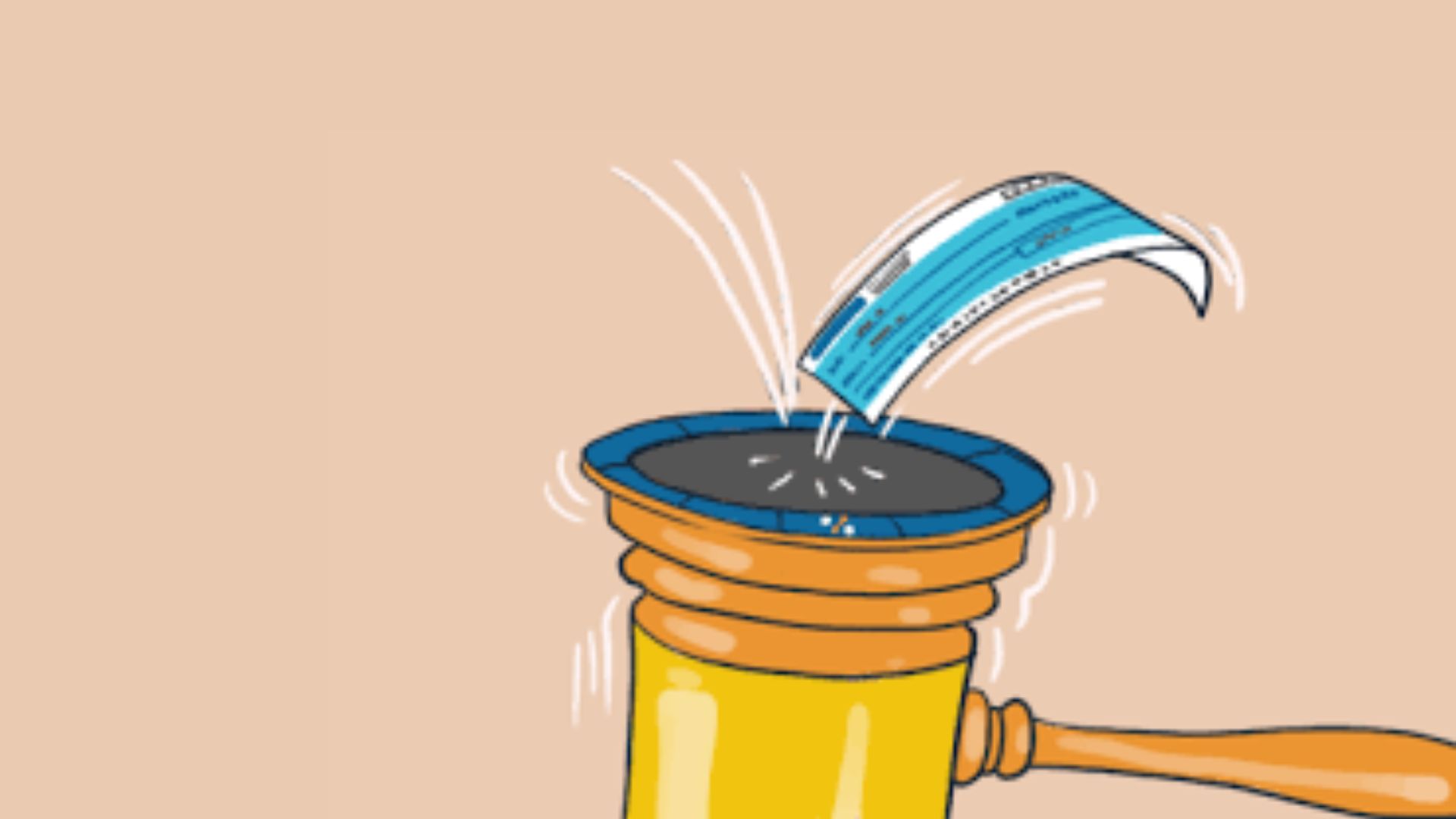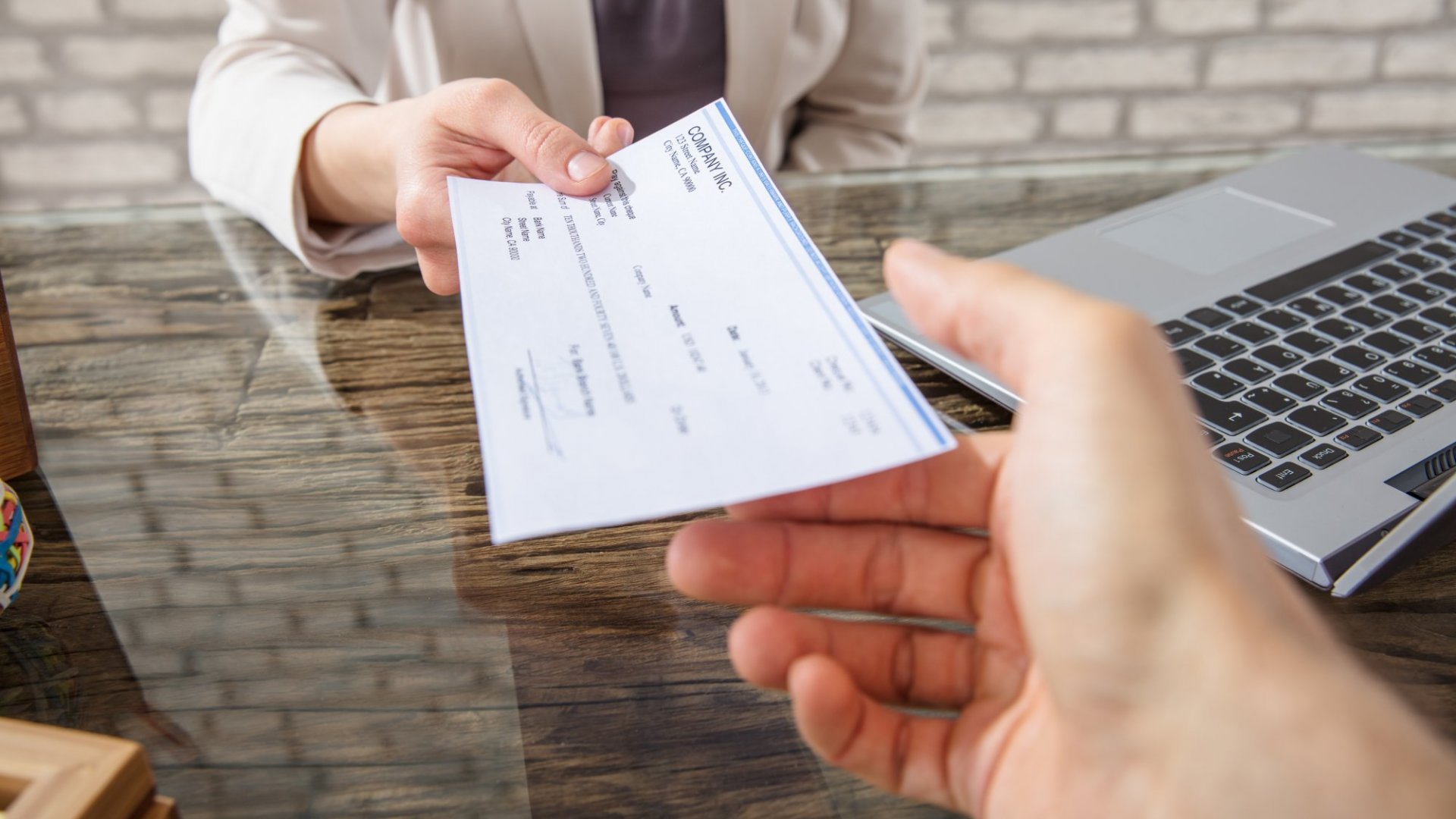What Are The Possible Reasons For A Bounced Check?
What are the possible reasons for a bounced check? Bounced checks, also known as insufficient funds or returned checks, occur when there are inadequate funds in the account to cover the amount specified on the check. The primary cause of a bounced check is insufficient funds, meaning that the account balance is lower than the check amount. Insufficient funds can stem from various reasons such as unexpected expenses, overspending, or delayed deposits.
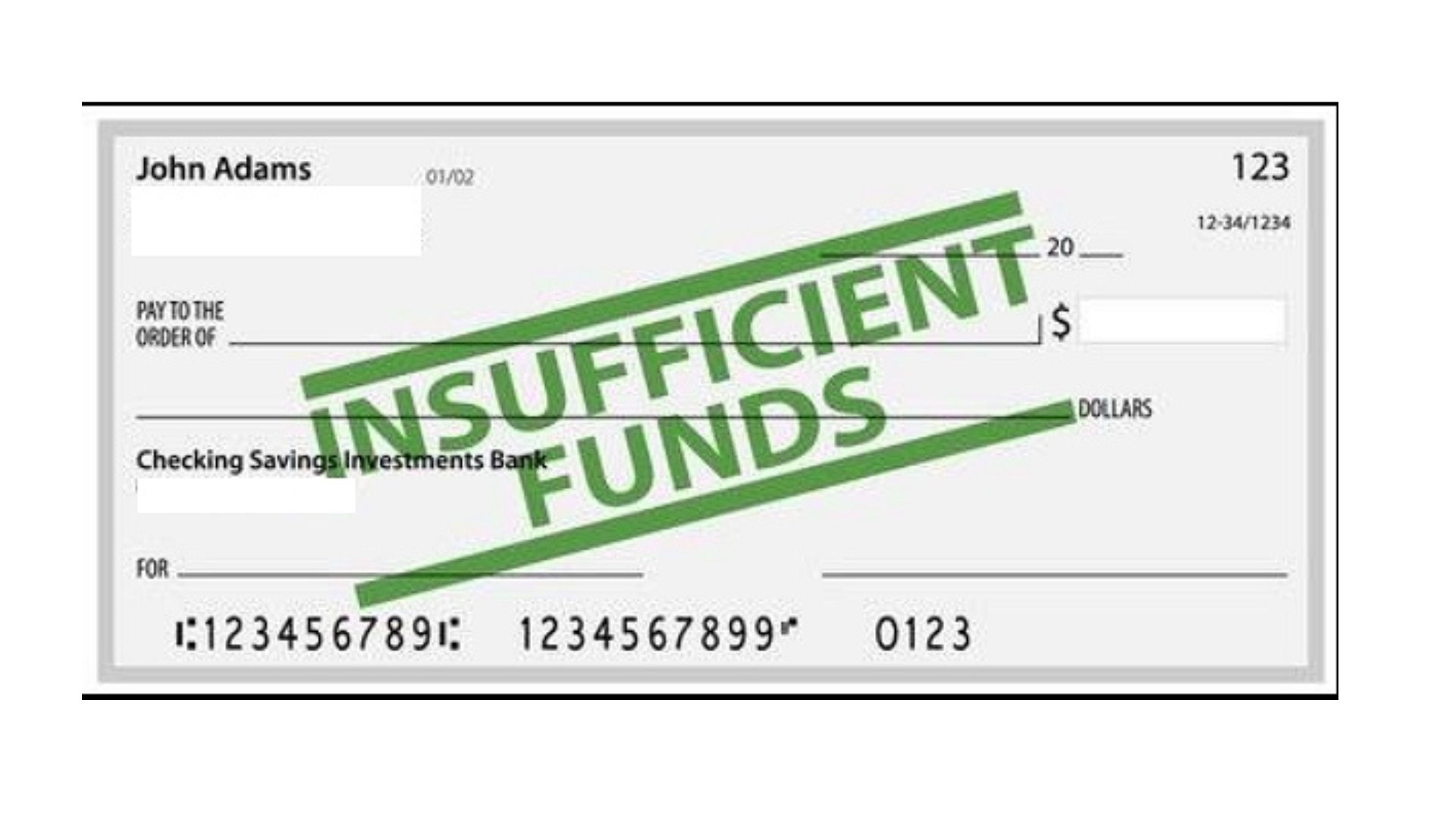
Morgan Barrons
Jan 23, 2024
Grasping what are the possible reasons for a bounced checkis paramount for individuals and businesses alike. From insufficient funds to signature mismatches, this financial hiccup can lead to a cascade of consequences, including fees, legal troubles, and damage to one's financial reputation.
By adopting sound financial practices, regular account balancing, and timely communication, individuals can minimize the risks associated with bounced checks and maintain a healthier financial standing.
What Is A Bounced Check?
A bounced check, also known as a rubber check or a returned check, is a check that cannot be processed because the person who wrote the check needs more funds in their bank account to cover the amount specified on the check. When a check bounces, it means that the bank will not honor the payment and will return the check to the payee (the person or business to whom the check was written) due to insufficient funds.
Bounced checks can occur for various reasons, such as the account holder needing to keep track of their balance, writing a check before a deposit clears, or other issues with the account. In many jurisdictions, writing a check with insufficient funds can be considered a criminal offense, and the person responsible may face penalties, fees, or legal consequences.
Both the person who wrote the bounced check (the drawer) and the person or business who received the check (the payee) may incur fees from their respective banks. Payees often charge a returned check fee, and the drawer may face overdraft fees from their bank. Additionally, the bounced check can negatively impact the drawer's credit score and banking relationship.
What Happens When A Check Bounces?
When a check bounces, it means that the bank cannot honor the payment because there are insufficient funds in the account to cover the amount of the check. This situation can occur for various reasons, such as insufficient funds, a closed account, or issues with the check itself. Here's what typically happens when a check bounces:
- Non-Sufficient Funds (NSF) Fee- The bank of the person who wrote the check (the drawer) will likely charge them a fee for having insufficient funds in their account. This fee varies by bank and jurisdiction.
- Notification to the Account Holder - Their bank may notify the account holder who wrote the check about the bounced check. This notification may come in the form of a physical letter, an email, or an online notification.
- Reattempt or Hold- Some banks may attempt to reprocess the check after a few days in case the account balance has been replenished. In other cases, the check may be put on hold until there are sufficient funds in the account.
- Communication from the Payee's Bank- The bank of the person who received the bounced check (the payee) may notify them of the issue. This often involves informing the payee that the check they deposited or cashed has bounced.
- Possible Additional Fees for the Payee- The payee's bank might charge them a fee for depositing or cashing a bounced check. Additionally, the payee may charge the drawer a fee for the inconvenience.
Different Reasons - Why A Cheque Bounces?
Not Enough Money
If the check is returned for "insufficient funds," the person who wrote it will be charged a fee. The Negotiable Instrument Act of 1881 says it could also be a crime. The receiver can go after the payer in court if the check bounces.
In some cases, the payer could go to jail as well as pay a fine. The act says that the jail sentence can last up to two years. The payee could ask the payer to send a new check, or they could go to court and follow the proper steps.
Signature Mismatch
A check could also bounce because the signatures don't match. If so, you should make a new check with the correct signature. If your name doesn't look right, you should always go to the bank and have it checked.
Cheque Date
For three months, a check is still good. If you bring a check to the bank after three months from the date written on it, they will not accept it. The check will also not be cleared if it has an old date on it.
Account Holder Error
Another common reason checks bounce is that the account holder made a mistake. This can happen if someone writes a check but needs to realize their account balance needs to be more to cover the amount or if they write the wrong information on the check (for example, the wrong date, sender, or amount).
Fraudulent Activity
Bounced checks can sometimes be caused by fraud, like check forgery, identity theft, or someone getting into your account without your permission. The bank will usually refuse to cash a check that turns out to be fake, and they may also start an investigation into the case.
People who want to avoid having checks bounce because of fraud should check their account statements often, tell their bank about any strange behavior, and take steps to keep their personal information safe.
Stale Date
People write bad checks when they haven't been paid in six months, which is what is meant by the term "stale" or "stale-dated." Checks that are more than six months old don't have to be cashed by banks. If the person who gets the check puts it in a box and doesn't find it again for seven months, you might have to write them a new check.
Differences In Numbers And Words
If the number and written amount on a check doesn't match, the check may bounce. Banks double-check these two numbers to make sure they are correct. If there's a difference, it makes people suspicious, and the check is usually turned down.
Damaged Or Torn Cheque
Integrity is essential. If a check is torn, damaged, or treated wrong, it might not be able to go through automated processing systems and will be returned. To make sure deals are safe and quick, banks put a high priority on how well and how easily checks can be read.
Overwriting
Too many changes or additions to a check can make people question its validity. Checks are checked carefully by banks, and if there are any signs of tampering or changes that were not made by the person authorized, the check may be refused.
Check Is Fraudulent
If a check is found to be fake or fake, it will not be honored. Banks use high-tech security measures to spot fake checks. This keeps account users safe from financial risks and keeps the banking system honest.
Account Has Been Closed
If the issuer's account is closed or doesn't have enough money in it, the check will bounce. Before processing checks, banks make sure there are enough funds in the account. If the account is closed or doesn't have enough money in it, the check will be refused, which keeps the bank from losing money.
Consequences Of A Bounced Check
If you bounce a check, even if you didn't mean to, the consequences can be expensive and tend to get worse over time. To begin, you'll need to go through the payment process again with the seller. As you read this, your bill payment needs to be on time for a mortgage, utility bill, or car loan. You will have to pay late fees.
There may be more than one fee, which we'll talk about below. If things get better, your merchant might even tell a credit company about the late payments. In many situations, you may have to use a different method of payment for a while, especially if you've had several payments returned.
Overdraft Fees
You will be charged an overdraft fee if you make purchases that are more than the amount of money in your account.
When you write a check, and your bank lets the payment go through even though it puts your account in the red, this is called an overdraft. Not only will you have to pay back the overdraft amount, but you'll also have to pay an overdraft fee of up to $36 per instance.
NSF Fees
Some banks and online lenders, like Chime and Quontic, don't charge fees for going overdrawn. They instead offer overdrafts without fees and will hold on to the extra money for a short time until you can make a new payment.
You can still get NSF fees even if your bank rejects the payment. When you don't have enough money in your account to cover the processing of a check or internet payment, you will have to pay these fees, which are usually $34 each.
Your bank might try to process the charge again before rejecting it, and for the trouble, they might add an administrative fee to your account.
Reporting To Consumer Reporting Agencies
Companies like Telecheck and ChexSystems may find out about your lousy check-writing habits. Retailers who take checks can get information about banks from consumer reporting agencies. These agencies let retailers know if a checking account number or name is a high risk.
Not only that, but you might find that most stores will no longer let you write checks. You might also have trouble starting a bank account because banks have to report to these groups, too.
Frustration And Financial Risk
If you place a check that bounces, you'll be angry that you don't have the money you were promised, and your bank may also charge you fees.
To fix the check, you might need to hire a lawyer or a collecting agency, which will cost you more money. You might not be able to get the money back either, so you'll be out of both the things you sold and the money.
Merchant Fees
To make matters worse, you'll have to pay fees to both the seller who was inconvenienced and wasn't paid, and your bank. After taking back the payment, the store may charge you a late fee if your account has one.
You can also usually expect to be charged a fee for a check that is returned. This helps the store cover any lost processing fees and the stress of having their account debited without warning.
What Do You Do If You Deposit A Check That Bounces?
Even though it might be annoying that the money you expected isn't in your account, give it a moment and think that the failed check you got was a mistake. Feeling sorry for someone can help you get paid and skip steps that take more time.
Contact The Person Or Company That Wrote You The Check
You can call or email them, but make sure to write down what you said and what the trouble is. The person who wrote the check should be able to help you, and then you can either deposit the check again or find another way to get the money you're due.
Redeposit The Check
You should go to a branch of the bank that wrote the check and give it for payment if you are close to one.
If the check is turned down a second time, this can help you escape any fees your bank might charge. Before putting the check back in your bank, you can call the online bank that the check is made on to make sure there are funds in the account.
Send A Letter Demanding Payment
Feel free to write a letter to the person who wrote the check and their bank, making sure to send a copy to both if you can't get the check to clear. The letter will be sent by certified mail so that the receiver can sign for it.
You can tell them how long they have to pay the check, which is usually 30 days, but it could be different depending on the rules in their state. The bank can help you with the specifics.
Go To Court
You can take the person who wrote the check to small claims court if something else works and the check still needs to be paid. Make sure you know how much you can be sued in small claims court in your area, and when you go to court, bring all of your paperwork with you to show the judge that you are trying to get paid in good faith.
How To Avoid Bouncing Checks?
To avoid bounced checks, you need to get into a few good habits that will also help your money in other ways.
- Check your bank account to see how much money you have left to spend. Only write the check if you have the money. Remember to add up regular payments and online bill payments.
- Check your account amounts before you spend money. You can use your phone or computer to log in to your accounts online. Check your amount at an ATM or, if you have to, call your bank. It's worth the extra time to avoid having checks bounce.
- That way, you'll know where every dollar goes before you even get it. When you plan, you can make sure you have enough money to pay for the things you need and not spend too much on things you'd rather not have.
- You can still use your bank's online bill payment service to pay your bills, but it's still best to read each one and choose when to pay it. When you pay your bills online, all you have to do is click "Submit" once everything is set up. This saves you money on mail.
- If everything else fails, get an extra line of credit. It is usually the cheapest choice at the bank. Most of the time, the steps above will keep you from having to bounce checks, but it's always a good idea to have a backup plan.
Frequently Asked Questions
What Is The Reason For The Bounced Cheque?
Insufficient funds in the account.
What Is The Cause Of A Bounced Check?
Lack of available funds to cover the check amount.
What Are The Grounds For A Bounced Cheque?
Insufficient balance, account closure, or a stop-payment order.
What Is An Example Of A Bounced Check?
A check is written for $500 when the account only has $200, resulting in a bounced check.
Final Thoughts
Grasping what are the possible reasons for a bounced check is paramount for individuals and businesses alike. From insufficient funds to signature mismatches, this financial hiccup can lead to a cascade of consequences, including fees, legal troubles, and damage to one's financial reputation.
By adopting sound financial practices, regular account balancing, and timely communication, individuals can minimize the risks associated with bounced checks and maintain a healthier financial standing.
